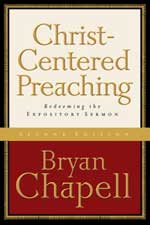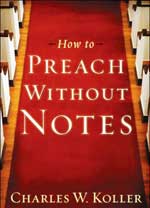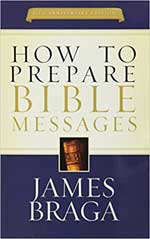Knowing What Matters in Life (Jeremiah 9:23-24) reminds us that success without God is just noise without meaning.

Knowing What Matters in Life
We live in a world that celebrates success, wealth, and influence—but none of those things satisfy the soul or save the heart.
Years ago, I met a man who had everything money could buy but nothing that truly mattered—until he met Jesus.
That’s why Knowing What Matters in Life (Jeremiah 9:23-24) is so important. In this passage, God reminds us to stop chasing shadows and start walking in the light of knowing Him.
1. We Must Know Man’s Limits
“Thus says the Lord: ‘Let not the wise man glory in his wisdom, Let not the mighty man glory in his might, Nor let the rich man glory in his riches;'” (Jeremiah 9:23)
A. Boastful minds misplace confidence
Jeremiah 9:23 gives a clear warning: “Let not the wise man boast in his wisdom…” God knows how easily we lean on intellect, power, or wealth to feel secure. But these things cannot carry the weight of eternity. They shift like sand beneath our feet. Wisdom without God becomes pride, strength becomes self-reliance, and riches become idols.
Think of Solomon. He had unmatched wisdom, global influence, and abundant wealth—yet his heart strayed when he forgot where those blessings came from. Human accomplishments may impress others, but they never impress God. Only dependence on Him matters. Psalm 20:7 reminds us, “Some trust in chariots… but we trust in the name of the Lord our God.” That’s where true confidence rests.
B. Boastful hearts miss Christ
Pride closes the door that faith opens. When we trust in ourselves, we leave no room for the Savior to lead. Jesus told the story of the Pharisee and the tax collector in Luke 18. One exalted himself, the other humbled himself. Only one went home justified—because only one admitted his need for mercy.
God resists the proud but gives grace to the humble (James 4:6). When our hearts are full of self, we miss the beauty of Christ’s sufficiency. But when we empty ourselves, He fills us with His life. Let’s not be people who miss Jesus because we think we can make it on our own. Let’s boast in the cross alone (Galatians 6:14).
“This material provides some ideas and thoughts for a message from Jeremiah 9:23-24 concerning the topic: Knowing What Matters in Life.”
2. We Must Know God’s Heart
“But let him who glories glory in this, That he understands and knows Me.” (Jeremiah 9:24a)
A. Delighting God defines wisdom
God doesn’t ask us to know about Him—He invites us to know Him. That’s a relational call, not an academic pursuit. True wisdom begins not with facts, but with fear of the Lord (Proverbs 9:10). The wise person knows God’s character—His mercy, holiness, faithfulness—and lets that knowledge shape everything else.
Moses once said, “If Your presence does not go with us, do not send us up from here” (Exodus 33:15). He valued knowing God more than any promised land. That’s what real wisdom looks like—valuing God’s presence above every possession. When we pursue God’s heart, wisdom follows. It reorders our priorities and sharpens our focus.
B. Delighting God directs life
When you know what pleases God, it changes how you live. His heart becomes your compass. His joy becomes your aim. The more you understand God’s nature, the more you want to reflect it—in your work, your home, your relationships, and your choices. This is where faith becomes action.
Micah 6:8 says God requires us “to act justly and to love mercy and to walk humbly” with Him. That’s not abstract religion—it’s real-life obedience. When we know God’s heart, we begin to live in step with His purposes. And that’s when life begins to matter in all the right ways.
3. We Must Know God’s Honor
“‘That I am the Lord, exercising lovingkindness, judgment, and righteousness in the earth. For in these I delight,’ says the Lord.” (Jeremiah 9:24b)
A. Displaying grace glorifies God
God delights in kindness, or “steadfast love.” He isn’t impressed by titles or talents—He rejoices in mercy shown through us. When we forgive, when we serve, when we choose compassion over retaliation, we display His grace. That kind of love reveals what God is really like to a watching world.
Think of the Good Samaritan. He didn’t quote Scripture—he lived it. His mercy honored God far more than the priest’s empty religion. When we show grace, we give people a glimpse of heaven’s culture. And in that moment, God is glorified. People see Him, not just us.
B. Displaying truth grows witness
God also delights in justice and righteousness. He calls us to reflect His moral clarity in a world full of compromise. That means living truthfully, standing for what’s right, and treating others with fairness and dignity. When we walk in truth, we shine a light that cuts through the darkness.
Jesus said, “Let your light shine… that they may see your good deeds and glorify your Father in heaven” (Matthew 5:16). Truth lived out becomes a powerful witness. And every time we choose integrity over convenience, people take notice—and some may even turn toward the God we serve.
Conclusion
So much of life pulls us to chase what won’t last—success, approval, money, control. But God points us to what matters most.
Jeremiah reminds us: don’t boast in what you can do, boast in who you know. Boast in the Lord.
I once sat with a man who had lost everything but said, “Now I know what really matters in life—I know Jesus.”
So friend, trust God with the journey. Know Him, love Him, and walk with Him. That’s where life truly begins.
Source Material
Believer’s Bible Commentary by William MacDonald
The MacArthur Bible Commentary by John MacArthur
Must Have Sermon Preparation Books
The Importance For Application

QUOTE by Bryan Chapell: People have the right to ask, “Why did you tell me that? What am I supposed to do with that information? All right, I understand what you think – so what?” The healthiest preaching does not assume listerers will automatically see how to apply God’s truths to their lives; it supplies the application people need.
If even the preacher cannot tell (or has not bothered to determine) how the sermon’s truths relate to life, then people not only are unlikely to make the connection, but also will wonder why they bothered to listen (Christ-Centered Preaching by Bryan Chapell [Amazon Books]).
The Importance of Structure

QUOTE by Charles W. Koller: Preaching without notes is largely a matter of structure … without sound structure, a real message may prove obscure and impotent.
Sound structure will add immeasurably to the power of a sermon and good homiletical habits are a priceless resource to the pulpiteer … an outline that stands out clear and sharp is the first long step to freedom in the pulpit (How To Preach Without Notes by Charles W. Koller [Amazon Books]).
The Importance of the Conclusion

QUOTE by James Braga: The conclusion is undoubtedly the most potent element in the entire sermon. If it is poorly executed, it may weaken or even destroy the effect of the preceding parts of the discourse. But some preachers forget the importance of the conclusion with the result that their sermons, which otherwise are carefully and thoroughly prepared, fail at the crucial point.
Instead of concentrating their material into a burning and powerful focus, they allow the current of thought to be dissipated by commonplace or feeble remarks at the close (How To Prepare Bible Messages by James Braga [Amazon Books]).
